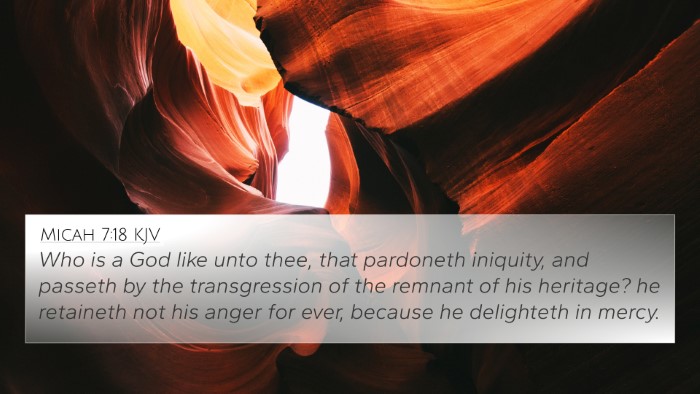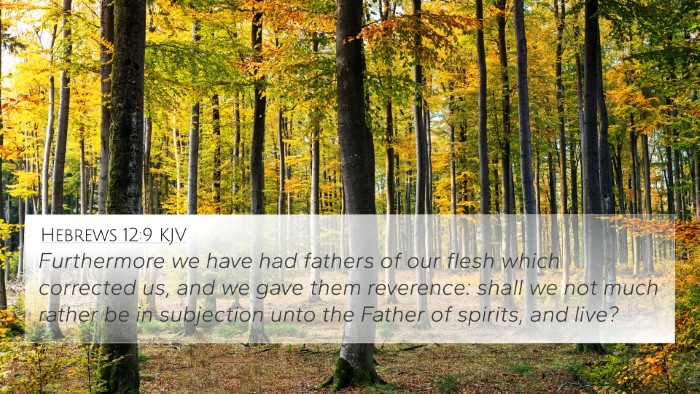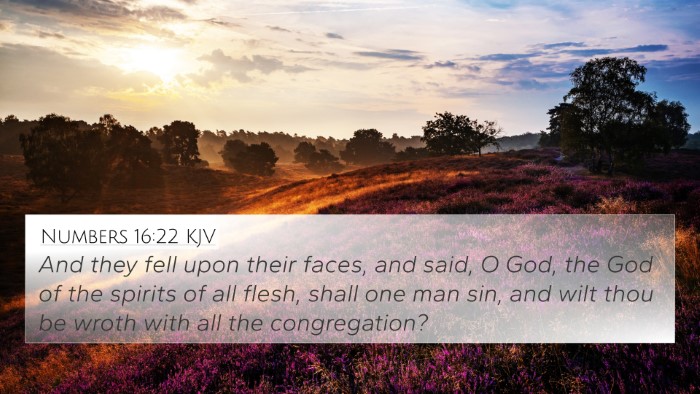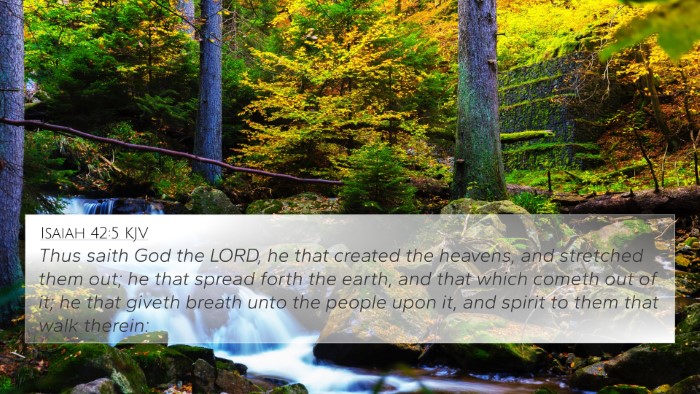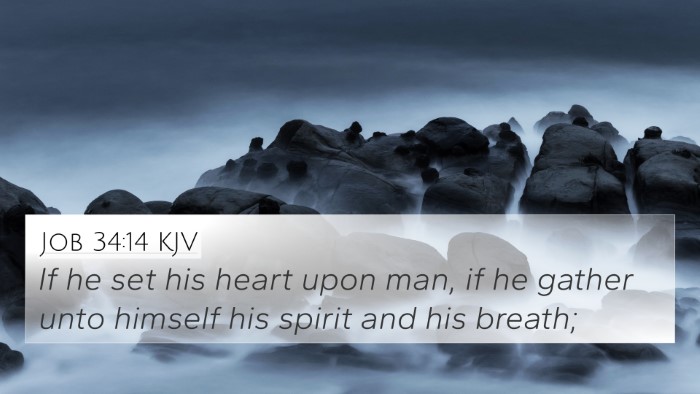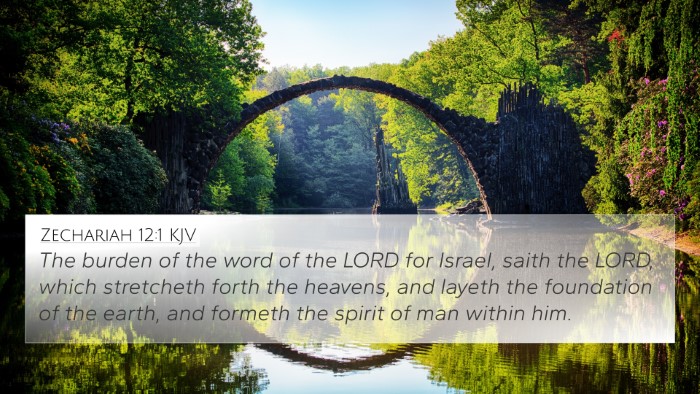Understanding Isaiah 57:16
Isaiah 57:16 states: "For I will not contend forever, nor will I always be angry; for the spirit would grow faint before me, and the souls which I have made."
This verse reflects God's compassion and willingness to forgive. It asserts that while God may be justly angry due to the sins of His people, His grace and mercy ultimately prevail. The following summary combines insights from various public domain commentaries to provide a deeper understanding.
Context and Overview
The verse is situated within a larger passage that speaks of God's judgment and mercy. Here, God makes it clear that He will not remain in a state of contention or anger indefinitely. This reflects His desire for reconciliation and healing rather than punishment.
Commentary Insights
-
Matthew Henry:
Henry emphasizes God's balancing act between justice and mercy. He points out that God's anger is not perpetual. Instead, He chooses to relent, ensuring that the fainthearted and those burdened by guilt can find hope in His forgiveness.
-
Albert Barnes:
Barnes highlights the importance of understanding that God’s spirit—His essence and the souls He created—are vital to His character. He interprets this verse as an assurance that God’s mercy triumphs over judgment, providing comfort to believers.
-
Adam Clarke:
Clarke elaborates on the implications of God’s refusal to contend forever. He remarks that God's goal is not destruction but restoration. Clarke sees God's patience as an invitation to repentance and a promise that the spirit will not fade away under His judgment.
Bible Cross-References
Isaiah 57:16 connects with several other passages that highlight similar themes of God's mercy, anger, and the restoration of His people:
- Psalms 78:38: "But He, being full of compassion, forgave their iniquity, and destroyed them not." This emphasizes the idea of God's enduring compassion.
- Ezekiel 18:23: "Have I any pleasure at all that the wicked should die? says the Lord GOD. And not that he should return from his ways and live?" This demonstrates God's desire for repentance over punishment.
- Jeremiah 3:12: "Go and proclaim these words toward the north, and say, 'Return, backsliding Israel,' says the LORD; 'I will not cause My anger to fall on you.'" Another affirmation of God's willingness to forgive.
- Micah 7:18: "Who is a God like You, pardoning iniquity and passing over the transgression of the remnant of His heritage?" This speaks to God's unique ability to forgive.
- 2 Peter 3:9: "The Lord is not slack concerning His promise, as some count slackness, but is long-suffering toward us, not willing that any should perish but that all should come to repentance." A New Testament reflection of God's patience and desire for restoration.
- Romans 5:20: "Moreover the law entered that the offense might abound. But where sin abounded, grace abounded much more." This underlines the theme of grace overcoming sin.
- Luke 15:20: "And he arose and came to his father. But when he was still a great way off, his father saw him and had compassion, and ran and fell on his neck and kissed him." A parable illustrating God’s acceptance and mercy for the repentant sinner.
- Isaiah 54:8: "In a little wrath I hid My face from you for a moment; but with everlasting kindness, I will have mercy on you," showing God's ultimate intention to be merciful.
- John 3:17: "For God did not send His Son into the world to condemn the world, but that the world through Him might be saved." This affirms the theme of salvation over condemnation.
Thematic Connections
The themes within Isaiah 57:16 resonate with numerous passages throughout the Bible. These include:
- God’s Mercy: A recurring theme highlighted in many scriptures demonstrating His capacity to forgive and restore.
- Patience vs. Judgment: God’s balance between rightful judgment and His infinite patience is evident in both the Old and New Testament.
- Restoration: The call to return and the promise of renewal found consistently throughout prophetic literature and the Gospels.
Tools for Bible Cross-Referencing
For those looking to delve deeper into cross-referencing Biblical texts, various tools are available:
- Bible Concordance: A useful resource for finding words and themes in the Bible.
- Bible Cross-Reference Guide: Helps locate scripture that relate to specific themes or verses.
- Cross-Reference Bible Study: Methods to compare verses across different sections of the Bible.
- Comprehensive Cross-Reference Materials: Books and software containing cross-references for extensive study.
Conclusion
Isaiah 57:16 encapsulates the essence of God's nature—judgment tempered by mercy. As seen through the prism of cross-references, this verse relates to many others that affirm the Lord's desire for our return and reconciliation. Understanding these connections enrich our study of Scripture and enhances our comprehension of God's will for humanity.
Frequently Asked Questions
- What verses are related to Isaiah 57:16? Cross-references include Psalms 78:38, Ezekiel 18:23, and Micah 7:18 among others.
- How do Isaiah 57:16 and Jeremiah 3:12 connect? Both emphasize God's reluctance to be angry forever and His desire for people to return to Him.
- What does Isaiah 57:16 teach about God's nature? It reveals God's balance of justice and mercy, showing His willingness to forgive.



